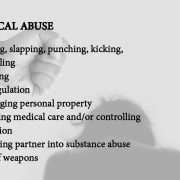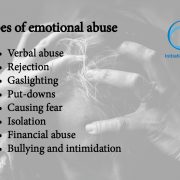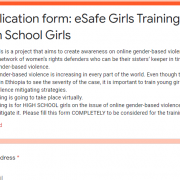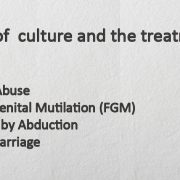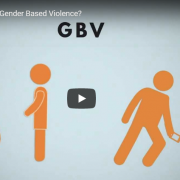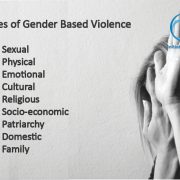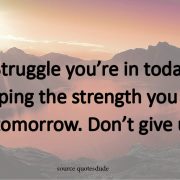What is Physical Abuse ?
/0 Comments/in News /by initiativeadminPhysical abuse is any physical force that injures you or puts your health in danger. Physical abuse can include shaking, burning, choking, hair-pulling, hitting, slapping, kicking, and any type of harm with a weapon like a knife or a gun. It can also include threats to hurt you, your children, your pets, or family members. Physical abuse can also include restraining you against your will, by tying you up or locking you in a space. Physical abuse in an intimate partner (romantic or sexual) relationship is also called domestic violence.
Opportunity Alert
/8 Comments/in News /by initiativeadminThe UNITAR Social Entrepreneurship Training Program for Women aims to empower women with the knowledge and skills of entrepreneurship and mentor them to develop self-led entrepreneurial initiatives and solutions (social or commercial) that will harness digital technologies to address socio-economic challenges.
The target audience are passionate and potential entrepreneurs from the Horn of Africa including members of Small and Medium Enterprises, government agencies and academic institutions. This program is open only for women from Ethiopia, Kenya, Somalia, and Sudan.
For more information: https://apply.unitar.org/prog/womens_entrepreneurship/
UNITAR
What is emotional abuse?
/0 Comments/in News /by initiativeadminEmotional abuse can feel as destructive and damaging as physical abuse, and can severely impact your mental health. It’s often used as a way to maintain power and control over someone.
Emotional abuse may be accompanied by other kinds of abuse: sexual, financial or physical. However, it doesn’t need to include other kinds of abuse to count as abuse; it’s serious enough on its own to be a concern.
Types of emotional abuse
Emotional abuse can involve any of the following:
- Verbal abuse: yelling at you, insulting you or swearing at you.
- Rejection: Constantly rejecting your thoughts, ideas and opinions.
- Gaslighting: making you doubt your own feelings and thoughts, and even your sanity, by manipulating the truth. For more information on how gas lighting works, visit the National Domestic Violence Hotline.
- Put-downs: calling you names or telling you that you’re stupid, publicly embarrassing you, blaming you for everything. Public humiliation is also a form of social abuse.
- Causing fear: making you feel afraid, intimidated or threatened.
- Isolation: limiting your freedom of movement, stopping you from contacting other people (such as friends or family). It may also include stopping you from doing the things you normally do – social activities, sports, school or work. Isolating someone overlaps with social abuse.
- Financial abuse: controlling or withholding your money, preventing you from working or studying, stealing from you. Financial abuse is another form of domestic violence.
- Bullying and intimidation: purposely and repeatedly saying or doing things that are intended to hurt you.
source REACH OUT.com
Training opportunity for Highschool girls
/0 Comments/in News /by initiativeadminApplication form: eSafe Girls Training for High School Girls
eSafe Girls is a project that aims to create awareness on online gender-based violence and create a network of women’s rights defenders who can be their sisters’ keeper in times of online gender-based violence.
https://docs.google.com/forms/d/e/1FAIpQLSesXp4zXg9iEAJzsulcHqswasUng8BuJuNPRGqhumHugVzowg/viewform
Cultural Norms as a struggle for women
/0 Comments/in News /by initiativeadminCulture is “the customs, civilization and achievement of a particular time or people.” Culture often determines the values, worldview, attitudes, behavior and practices of women and men from birth to death.
Traditional African society looked upon women as perpetually dependent on males. Women have to be protected and guided by men. Women are often objects of exploitation, and a source of wealth to men who handle them like personal property.
Yet, despite this cultural subordination, women in African tradition frequently occupy leading positions in divining, rainmaking and as mediums in prophesying, healing and counseling. These occupations illustrate that women are given leadership in various spheres, even in cultures generally repressive towards women.
Examples of culture and the treatment of women
- Chicken wings—In Uganda, women cannot eat chicken wings. Otherwise they would fly like a chicken and not be submissive, especially in bed.
- Physical Abuse—In some cultures in West Africa, women are to be beaten at least once in three months in order to remain disciplined. If they are not beaten, the women ask for it!
- Female Genital Mutilation (FGM). Some cultures say that a woman needs to go through FGM to be tamed, so that she does not become sexually promiscuous. This primitive practice is still active.
- Marriage by abduction- is a practice in which a man abducts the woman he wishes to marry. The woman is enslaved by her abductor, raped and taken as his wife. Later she may suffer different types of violence.
- Forced marriage- is a marriage in which one or more of the parties is married without their consent or against their will
While most cultures seem to lower or reduce the value of women, at the same time culture often raises the value for men to threatening proportions. For example, a Moran (Maasai young man) is expected to kill a lion to prove he is a real man. The boy child is encouraged “never to cry.”
by Judy W. Mbugua
Opportunity for Youth
/9 Comments/in News /by initiativeadminTeach For Ethiopia is a leadership development program which aims to ensure quality education for all children. One of the programs to achieve this goal is to recruit fresh graduates to join TFE.
Overview of the Teach For Ethiopia Fellowship
• A Two-year paid leadership development program
• Excellent training and coaching to fit your career aspiration
• A career path that opens the door for several opportunities after the Fellowship
• A chance to mentor and teach primary school kids
• An opportunity to be part of a Global Alumni Network
For more information reed the pdf Teach For Ethiopia Fellowship Application Form (1)
and the website www.teachforethiopia.org
Types of Gender Based Violence
/8 Comments/in News /by initiativeadminViolence against women can fit into several broad categories. These include violence carried out by individuals as well as states. Some of the forms of violence perpetrated by individuals are:
- rape, domestic violence, sexual harassment, acid throwing, reproductive coercion, female infanticide, prenatal sex selection, obstetric violence, online gender-based violence and mob violence;
as well as harmful customary or traditional practices such as
- honor killings, dowry violence, female genital mutilation, marriage by abductionand forced marriage.
There are forms of violence which may be perpetrated or condoned by the government, such as
- war rape; sexual violence and sexual slavery during conflict; forced sterilization; forced abortion;
violence by the police and authoritative personnel; stoning and flogging.
Many forms of VAW, such as
- trafficking in women and forced prostitution are often perpetrated by organized criminal networks.
15 Ways to Overcome Struggles in Life
/5 Comments/in News /by initiativeadmin15 Ways to Overcome Struggles in Life
In reality, at some point in our life, we all struggle. Even the most successful people you could ever think of go through that phase too. But even though we face these challenges, we have the choice on how to deal or respond to that kind of situation. It is up to us to build and train our mind to be optimistic and unstoppable amidst trials and adversities in life. Those people who are thriving and achieving their dreams today is a testament on how people can overcome anything against all odds.
The ability to overcome these struggles is not an easy one to work out. You need to have determination and grit to achieve it. Here are 15 ways that can help you to overcome struggles in life.
- Push your limits.
2. Don’t go through life alone.
3. Be optimistic
4. Have a journal.
5. Exercise!
6. Go out and explore.
7. Celebrate your summits- then seek out new ones.
8. Keep an open mind.
9. Stop comparing.
10. Avoid having a “pity-party”.
11. Feel the pain.
12. Stay committed and focused.
13. Avoid being too hard on yourself.
14. Enjoy peace and solitude.
15. Don’t ever stop trying.
For more https://inspiringtips.com/ways-to-overcome-struggles-in-life/
Address
Cameroon Street, Lucky Bldg.
Tel: +251 116 622640 / 622641
Fax: +251 116 622642
Email: info@initiativeafrica.net
Office Hours:
Mon -Fri : 8.00Am – 5.30Pm

